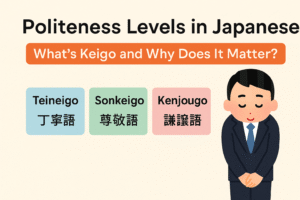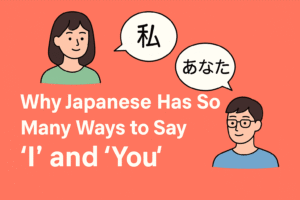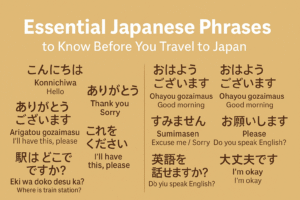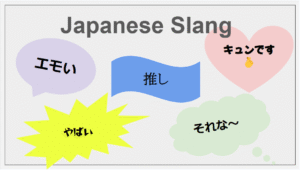If you’ve spent any time in Japan or watched Japanese anime and dramas, you might have noticed some quirky-sounding words that seem to repeat themselves: waku waku, pika pika, doki doki… What are these fun little words called onomatopoeia?
Japanese uses them a lot more often—and in more ways—than English does. While in English we mostly use onomatopoeia to mimic sounds (like buzz or splash), in Japanese, they can also describe feelings, actions, appearances, and even states of being.
Here are some of the funniest and most common Japanese onomatopoeia you’ll definitely hear around Japan (and maybe even want to use yourself!):
1. Peko peko (ぺこぺこ) – “I’m starving!”
This is the sound your stomach makes when you’re hungry… or at least, that’s the idea. People often say peko peko to express that they’re really hungry. You might hear, “Onaka peko peko!” (My stomach’s growling!)
There’s even a mascot named “Peko-chan” for the candy brand Fujiya!
2. Doki doki (ドキドキ) – Heart beating fast (with excitement or nerves)
Feeling nervous before a date? Or maybe your heart’s racing from excitement? That’s doki doki. It’s the sound of a pounding heart and often shows up in love stories and action scenes.
Anime fans may hear this one a lot!
3. Waku waku (わくわく) – Excited and looking forward to something
This describes the bubbly feeling of anticipation—like when you’re about to open a gift or go on a trip. “Waku waku suru!” means “I’m so excited!”
4. Bero bero (べろべろ) – Totally drunk
If someone says their friend got bero bero, they mean the person was completely wasted. It’s a silly way to say someone had too much to drink.
5. Giri giri (ぎりぎり) – Just in time / Barely made it
This word gives the sense of “cutting it close.” Like when you catch the train just before the doors close: “Giri giri maniatta!” (I just barely made it!)
6. Kira kira (キラキラ) – Sparkly or glittery
Used to describe things that shine—like stars, diamonds, or magical effects in anime. A child might say their favorite dress is kira kira because it has glitter on it.
Also used in slang, like “kira kira names” (over-the-top baby names).
7. Zara zara (ざらざら) – Rough or scratchy texture
Touch something with a rough surface? That’s zara zara. It’s often used to describe texture—like sandpaper, or dry skin.
8. Guu guu (ぐうぐう) – Snoring or sleeping soundly
This is the sound of someone snoozing peacefully (or sometimes not-so-peacefully). Think of it as the Japanese version of zzz.
Why So Many?
Japanese onomatopoeia are incredibly expressive and often double as verbs or adjectives. They make conversations sound more colorful and animated. In fact, it’s hard to speak natural Japanese without using a few of them!
Want to Try Using Them?
Next time you’re in Japan or chatting with a Japanese friend, try slipping in a few of these:
- “Onaka peko peko!” (I’m starving!)
- “Ashita no ryokou wa waku waku suru ne!” (I’m excited for tomorrow’s trip!)
- “Kanojo ni aitara doki doki shita.” (My heart raced when I saw her.)
They’re fun, expressive, and a great way to sound more natural when speaking Japanese.
If you’re studying Japanese, be sure to check out Japanese Slang!




